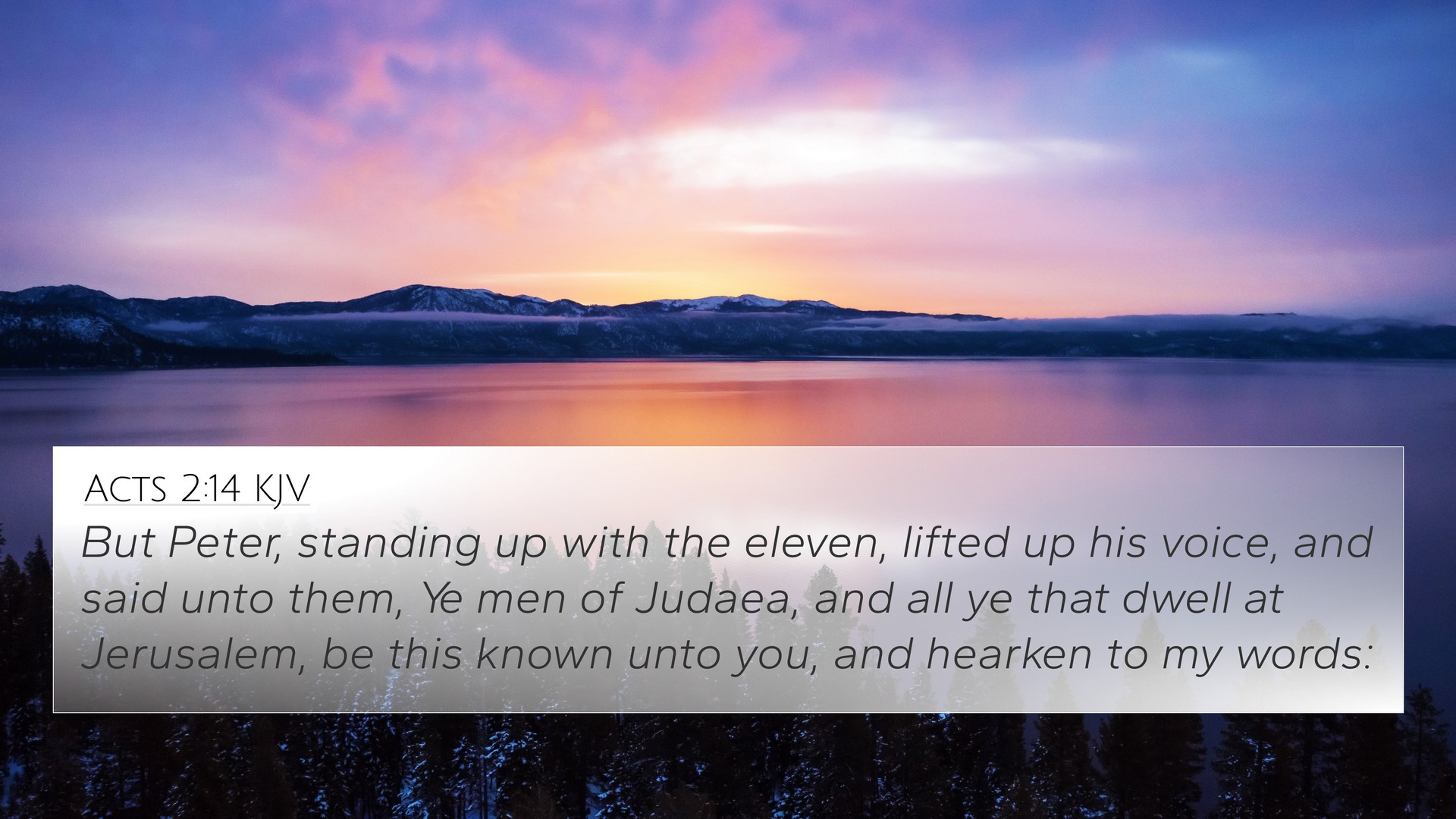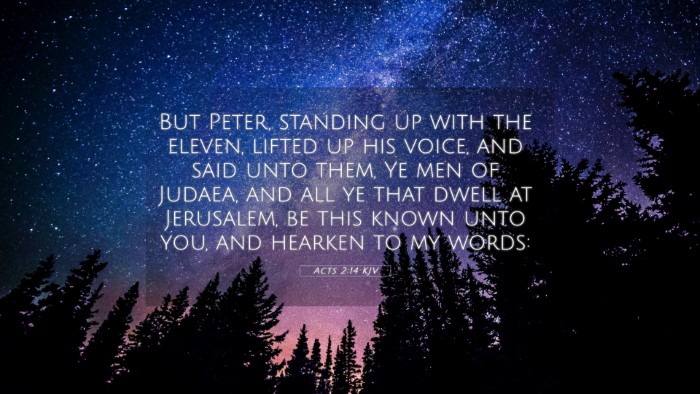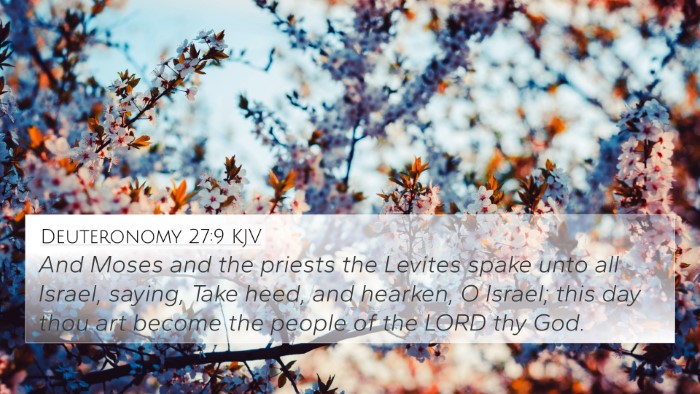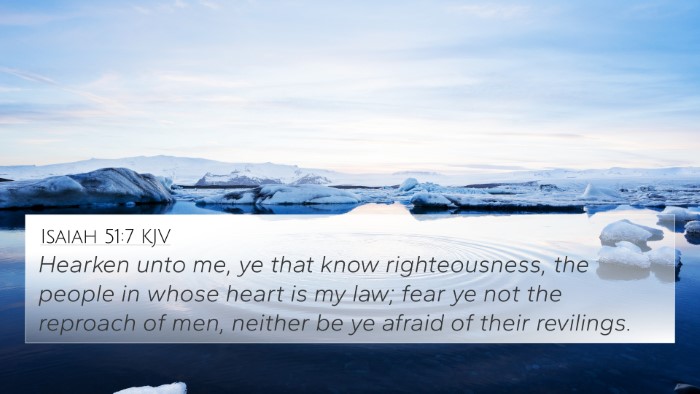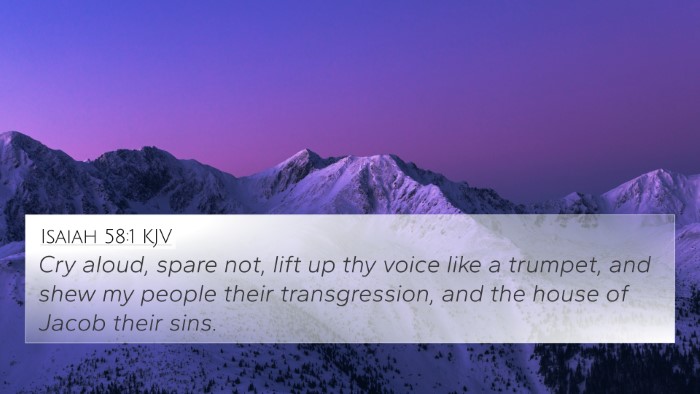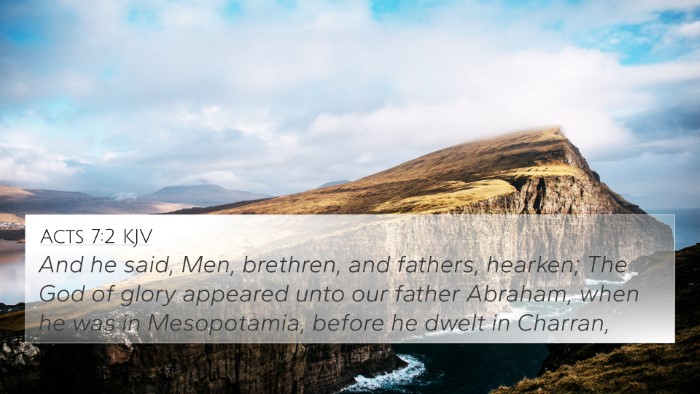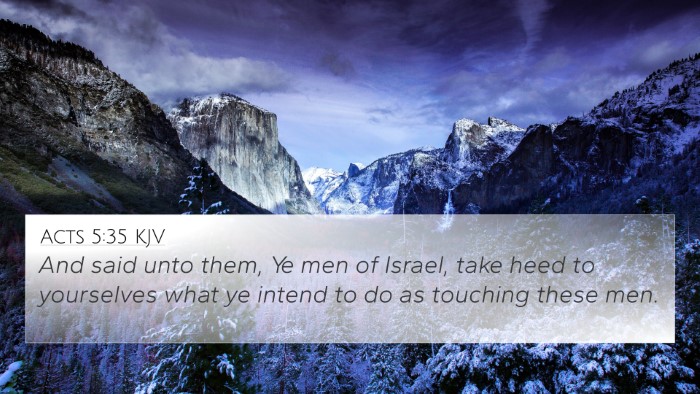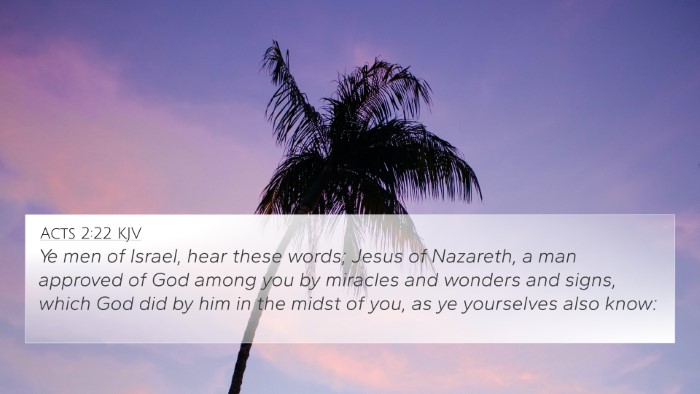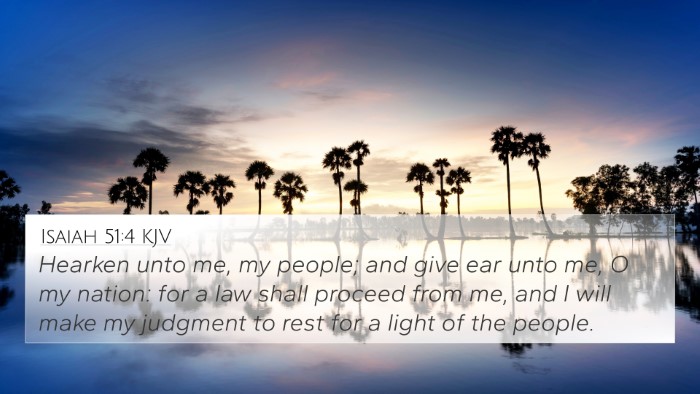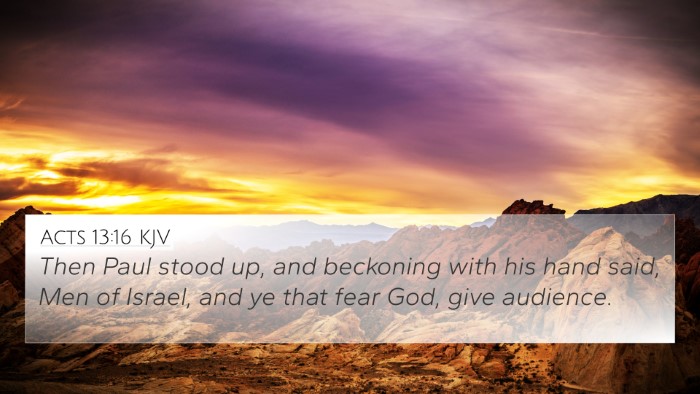Understanding Acts 2:14
Acts 2:14 states, "But Peter, standing up with the eleven, lifted up his voice, and said unto them, Ye men of Judaea, and all ye that dwell at Jerusalem, be this known unto you, and hearken to my words." This significant moment happens during Peter's address to the crowd after the outpouring of the Holy Spirit on the Day of Pentecost. Below, we explore the meaning of this verse by utilizing insights from public domain commentaries, along with connections to other relevant Bible verses.
Summary of Insights
Matthew Henry elaborates on Peter's authoritative stance, emphasizing that he stood with the other apostles, displaying unity and strength in his leadership. This action signifies that Peter is not acting alone but represents the collective witness of all eleven disciples. This sense of community is critical in the early Church's establishment.
Albert Barnes highlights the importance of Peter addressing “ye men of Judaea” and those “that dwell at Jerusalem.” He points out that this was a proclamation intended for both locals and visitors, establishing the message's urgency and relevance to the diverse audience present during the Pentecost celebration.
Adam Clarke focuses on the necessity of the crowd’s attention and listening. He notes Peter’s attempt to captivate the audience by inviting them to “hearken” to his words, indicating that the content of Peter’s message is vital for their understanding of the events they were witnessing.
Thematic Connections
This verse can be linked with various themes in the Bible. Below, we detail some themes and offer a cross-referencing analysis:
- Authority and Leadership
Peter’s leadership mirrors the submission to Divine authority seen in Matthew 28:18-20, where Jesus commissions His disciples to go forth and teach.
- Witness and Proclamation
Peters proclamation resonates with Matthew 10:27, where Jesus instructs His followers to proclaim openly what they hear.
- Fulfillment of Prophecy
Peter’s speech serves as a fulfillment of the prophecy in Joel 2:28-32, which speaks of pouring out the Spirit in the last days.
- The Role of the Holy Spirit
His speech occurs just after the Holy Spirit was poured out, as seen in Acts 2:1-4, establishing the basis for the Church’s mission.
- Community and Unity
The unity seen here correlates with Acts 4:32, where believers were of one heart and mind, essential for the early Church.
- Call for Attention
Peter’s call to listen is echoed in James 1:19, which encourages believers to be quick to hear and slow to speak.
- Response to Confusion
This moment addresses the confusion of the crowd, reminiscent of 1 Corinthians 14:33, which states that God is not a God of confusion.
Application and Reflection
Understanding Acts 2:14 invites readers to reflect on their role in the community of believers. How can we lift our voices as Peter did? It encourages us to consider our responsibility to witness and proclaim God’s messages in our contexts. Furthermore, we can ponder how we listen to messages from spiritual leaders today, echoing Peter’s call to attention.
Cross-Referencing Acts 2:14
For those interested in deeper studies, here are some useful tools and methods:
- Utilize a Bible Concordance to explore related terms and themes.
- Engage in Cross-Referencing Bible Study methods by identifying similar verses and their contexts.
- Adopt a Bible Cross-Reference Guide to find connections and deeper meanings.
- Look for Comprehensive Bible Cross-Reference Materials to enhance your study routine.
Conclusion
Acts 2:14 is a pivotal verse that sets the tone for the early Church, focusing on unity, authoritative witness, and the call to pay attention to God's Word. Through careful cross-referencing and thematic exploration, readers can find a wealth of spiritual insights and applications to enrich their faith journey.
